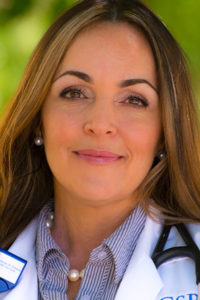
As Baby Boomers age, the need for pulmonologists continues to grow—not only because of the health needs of this aging demographic—but also because the field loses physicians daily to retirement. Despite fellowship programs graduating new physicians every year, the addition of pulmonologists is not keeping pace with the demand.
To address this growing concern, more and more practices are turning to advanced practice providers. For decades, advanced practice providers have served to increase patient access to primary care—particularly in rural areas—and now they’re doing the same in specialty practices.
A session this Monday afternoon aims to help pulmonology practices get the most benefit from the addition of an advanced practice provider. The session, Optimizing Your Practice With an Advanced Practice Provider, will take place at 4:30 pm in room 267 of the convention center.
Session chair Corinne Young, FNP-C, MSN, FCCP, of Colorado Springs Pulmonary Consultants PC, said given the increasing demand for high levels of care in the United States, many larger health systems have already developed efficient procedures for integrating advanced practice providers into specialty care. However, smaller specialty practices may not know where to begin the process. And, those who have brought an advanced practice provider on board may not know how to take full advantage of the skills they bring to the practice.
This session aims to demonstrate how advanced practice providers can benefit a practice and to help practices navigate the process of hiring and training an advanced practice provider.
Kim French, MHSA, CAPPM, FCCP, executive director of Suburban Lung Associates, will kick things off with a look at the costs associated with adding an advanced practice provider, including salary, benefits, and training. While there are no set standards regarding salary in the industry, French will share what salary and benefits data are available. She will also discuss billing and revenue considerations.
“We want attendees to know how advanced practice providers can add to their revenue cycle,” Young said.
Co-chair Susan Corbridge, PhD, clinical professor of medicine at the University of Illinois, will discuss the different types of advanced practice providers and which type may be best for a particular practice. Then Young will discuss the onboarding process—particularly training and education.
“There currently is no pulmonary fellowship program for nurse practitioners or physician assistants,” Young said. “You need a pulmonologist willing to train someone, or you need to find a good self-learner. If you hire a self-learner, what resources will you provide them to get them up to speed?”
Finally, Rhea Brown Votipka, MSN, APRN-BC, a nurse practitioner specializing in pulmonology at the University of Maryland Medical Center in Baltimore, will discuss how best to use an advanced practice provider’s skills and abilities for various responsibilities, including procedures, rounding, calls, and office applications.





